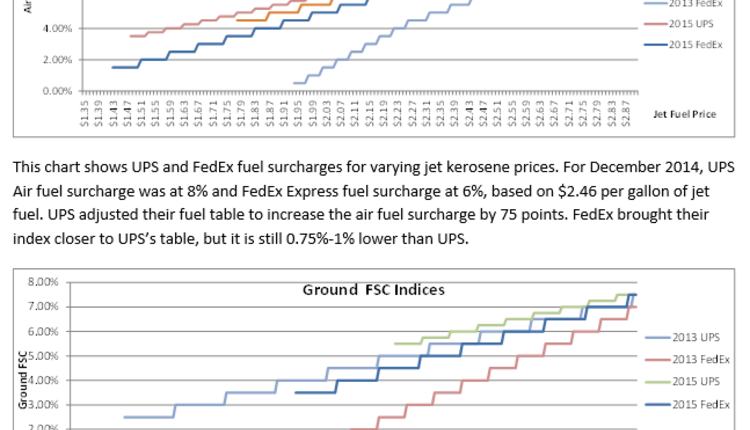On many levels, your relationship with your parcel carrier is like a partnership. You need your carrier so that you can perform your business, and the carrier needs you for revenue. You sign an agreement to regulate the functioning of this partnership, and, most of the time, the cost is the main focus of the agreement. You negotiate concessions on transportation services, accessorials, fuel, etc., and the carrier attempts to put in terms that force you to use them as the preferred carrier. While pricing is important, shippers should also look into the details on how the pricing is structured and if there are terms that tie the hands of the shipper from doing what’s best for them.
The most common enforcement terms carriers employ to tie shippers’ hands are revenue-based discounts and rebates. Some, or even most, of your discounts are probably tied to your gross or net spend. While the carrier will base the revenue tiers on shipper’s gross spend, many times factors like seasonality, business downturn, or service shifts could drop the shipper out of their normal revenue tier, resulting in extreme cost increases. Another pricing pitfall is tying discounts to rebates. A small deviation from the target spend might cost two to five percent of the total spend. Since they come with built-in risk, and for other reasons as well, they should be avoided in favor of discounts. Another factor that makes rebates less appealing is the way they are calculated. Usually they are based on the net spend and are subject to minimum charges, so a five percent rebate might only be worth as little as one percent of the net transportation spend.
In recent years, both national carriers have started pushing for "Early Termination Fees." This clause prohibits shippers from renegotiating, or diverting significant volume to another carrier, during the term of the agreement. Violating this clause could result in a hefty penalty. The parcel environment is too dynamic to accept a handcuff clause for such a long period of time. Just looking at the past three years, DIM factors have decreased to from 194 to 139, the DAS surcharges for SurePost/SmartPost doubled, Additional Handling Surcharge criteria was extended to include much smaller boxes, the Large Package Surcharge almost doubled, and fuel surcharges were moved from monthly to weekly updates. This year, UPS is implementing Peak Surcharge for all domestic services, which are going to cost all shippers; and the clear expectation is that FedEx will follow. Are you really willing to risk tying yourself to a carrier for three years, without being able to negotiate any of the curveballs the carriers throw at you every year? The terms the carriers try to put in the agreements prohibit shippers from negotiating anything until expiration is only six months away.
As a transportation leader within your organization, your duty is to make sure that the terms of the agreement are flexible and protect your organization’s interests not just today, but next month, next year, and the year after that. But with such a dynamic environment, that’s simply not possible if you’ve limited your options with verbiage in your carrier agreement(s). Allowing your carrier, any carrier, to limit your options is not only contrary to your interests but also flips the customer / vendor relationship on its head, which is never a good idea.
Signing a contract with your carrier is similar to signing a partnership agreement. The shipper has to protect itself from unfavorable terms that might result in high costs in the future.
Baris Tasdelen is Senior Transportation Analyst at enVista, where he focuses on negotiating parcel carrier contracts, analyzing parcel data for operational optimizations, and building and running cost models for parcel and other transportation modes.















